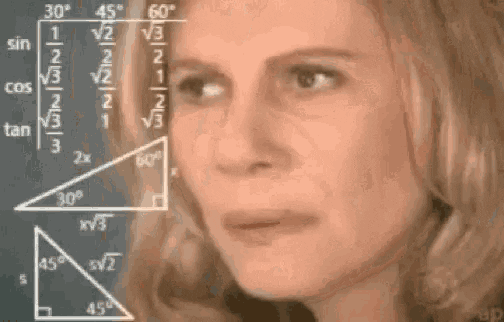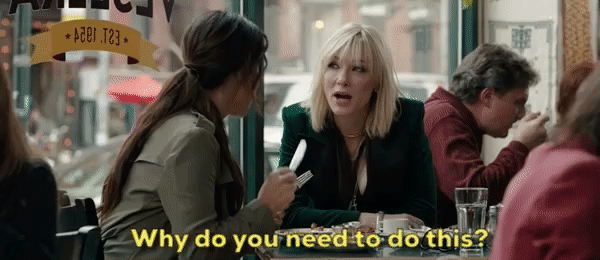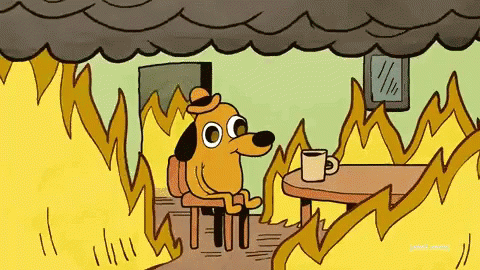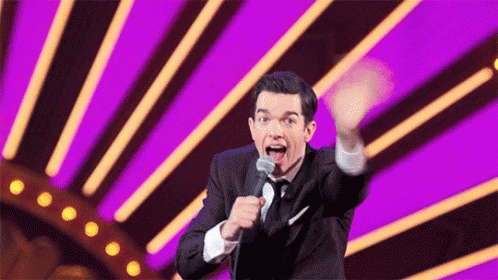how to walk away from a book
some real talk about discarded projects and process
astrology for writers is a reader-supported publication. if you enjoy getting this newsletter in your inbox, please consider becoming a paid subscriber.
The book I am working on now wasn’t the book I planned to be writing after my memoir, Heretic, came out last year. Nor was it the project I pursued after letting go of that one. Which is to say, at risk of this becoming an SAT question, this is the third book I have seriously worked on in the last year after my debut.
I’ve learned a lot since Heretic was published, which I’ll write about in its own newsletter in the coming week. But one lesson has been so comprehensive and consuming that it demanded its own space: How to walk away from a book.
How does one walk away from a book?
The short answer is: Not easily. With great ego death that perhaps transmutes into humility and a modicum of self-awareness. Also, probably, with help (from your writers’ group, your partner, your friends, your agent) — you know, the ones who pointed out what wasn’t working (in the craft, the body) in the first place. More on that later.
I’m going to share a bit about the books I had planned for, and have subsequently worked on, and what that journey of moving through them // letting them move through me has been like, with a few thoughts at the end. You may find something here. You may not. I’m someone who writes quickly and often, and so that is something to be aware of going in. Everyone’s journey is different. But there is always something to gain — even (especially) from the trail of unfinished projects we all have behind us.
First Stop: The Academic Book
Have your next book ready to go once the first is out, everyone I talked to said. Wonderful, wonderful. I am nothing if not a Saturnian who loves a 10-year-plan, and while I do love to make space for creativity to Do Its Thing, it had also become very clear in the final year or two of working on Heretic that I was somehow, simultaneously writing an academic-leaning Disney book. This is to say, my writers’ group had pointed out to me that my then-Longreads column, in which I used queer theory, etc. to analyze Disney films, was an obvious book in the making. (See: queer masculinity in Pocahontas; motherhood in Maleficent)

This kind of book appealed to my ex-PhD sensibilities. I had studied fairy tales in undergrad, taught queer and feminist fairy tales in graduate school, and had (have) a lifelong obsession with Disney, the Grimms, Perrault, and so on. After spending years writing an emotionally ravaging memoir, I was thrilled at the prospect of completely pulling back into my intellectual fortress and steeping in theory and criticism. I had manifested a fucking Disney column, after all. Why couldn't I manifest a life as a Disney scholar?
While polishing Heretic in revisions and copyedits, and working on marketing and publicity efforts in the lead-up to publication, I was also busy working on a book proposal for what my writers’ group had dubbed “the Disney book.” I was biting off more than I could chew with a full book project about a corporation the size of a small country, surely, but the opportunity to incorporate research trips to the parks! And film criticism! I was ecstatic. Just the medicine I needed after writing about religion.
When I finally sent the proposal to my (deeply trusted) agent, however, her reaction was the last thing I wanted to hear.
“Where is the heart?” she asked.
Was my obsession — not to mention years of academic study — not all over the page? Yes, yes, it was. But what was the emotional link to the material? What connected everything? And also, methodologically, why were these films the ones I had chosen? There were certain obvious gaps, and other things that didn’t make sense, from a critical perspective.
My methodology for the project wasn’t entirely coherent, she suggested. I needed to come back with something different, analytically, and/or with a more concrete emotional center. Not what I had wanted to hear after working on it for so long, of course. And while an agent’s word doesn’t have to be the end-all be-all, the fact that my project was commercially lacking on two points — both technical and emotional — was not something I could easily disregard.
Especially since, when I bothered to look at the project emotionally for more than five minutes (12th house moon, hello), the emotional center was glaringly obvious.
But I did not want to write about Disney through that lens. No, I wanted to keep my critical fairy tale work precisely that: critical. And reworking the methodology was something I did not feel especially equipped to do, in those weeks following Heretic’s release, when I felt like my reserves were entirely depleted.
This was especially underlined by the fact that our plan had been to try to sell my next book to my editor as soon as we could after the book came out… except then, employees at HarperCollins went on strike, with no end in sight. And so the (entirely self-induced) pressure of having that next project ready, when presented with a strike, suddenly dissipated.
During the strike, I put the Disney book on the back burner, where that simmering led me to another project entirely.
Stop Two: The Next Memoir/Essay Collection
I’m still not entirely sure how I leapt from a completely detached, academic book to “surely, another memoir-in-essays is a good idea!” when I had previously fully acknowledged that writing another memoir after Heretic would be a terrible idea for my emotional health.
But this was one of those work-myself-into-a-dervish moments where a new book idea just poured out of me. It was something about natal vs. chosen family, and ancestors, and descendants, and spirituality, and anyway, I wrote the whole book proposal in two weeks and promptly sent it off to my agent, who loved it. It had the heart that had previously been missing.
Even though the Harper strike ended by the time I was polishing the chapter summaries for this shiny new project, a few different personal crises proceeded to crash through the wall, all at once. (Some quite literally; see the Apartment From Hell of summer 2022-summer 2023.) And also, it became clear that my editor at Harper, who I loved with all my heart, would probably be leaving for another publisher, thus complicating the process of selling the next nonfiction book.
Between my personal life and the complications at the publisher, I decided to shelve this book for a few months, trusting that it would still be there on the other side once things had settled. Dozens and dozens of pages had poured out of me in one of those manic periods of inspiration that randomly occur, that can never be counted on but are oh so lovely when they happen. It can be tempting to think that any writing that occurs in such periods is divinely appointed, or Especially Important.
So this project sat, and sat. My agent loved it, true. But once I was able to return to it, after life had resumed its regular pacing, I didn’t feel the same spark of excitement as I had during those weeks of inspired glee. It wasn’t even that the project now felt like work: it felt like a fucking albatross. So much of it would require me to revisit painful relationships and dynamics that I longed to have space from. I was reminded of the year when I had finally decided to leave my PhD program. It felt like standing at the edge of a cliff, looking out over an endless abyss: am I really going to spend four or five more years doing this? Really? What if I just… didn’t?
Was I really going to commit to going Right Back Into Memoir Land? Digging up those old wounds that I’d rather just let heal, for now?
What if there was a creative option that was more… joyful?
What if I had been ignoring that option the whole time?
Third Stop (Sort Of): The Novel
There was another book simmering underneath all this, you see.
A book that had come to me in the weeks after Heretic came out. It came with a voice, and a witch in the woods, and — most importantly — a title. Like Heretic had arrived so long ago.
The only catch: It was a novel.
And my stubborn ass was scared, because I hadn’t written fiction in years. And I knew, all too well, that novels could only be sold if they were not only finished, but all prettied up. And my whole financial plan post-Heretic had involved selling a goddamn book as soon as possible. (This obviously did not happen. I have adjusted. Never plan on selling another book after your first book comes out, lest your publisher go on strike or your editor leave or any number of other things happen. Just don’t plan on it! Even if you’re the most Saturnian person in the world!)
This is to say, a novel was not convenient. Not for me, not for my bank account, and also! Not for my readers! No one knew I wrote fiction, except my sister and a handful of very old, distant friends from high school who remembered my fanfic from back in the day. My writers’ group had never read my fiction. Neither had my partner. Everyone who now knows my work knows me from memoir and religious trauma and essays. Not fiction.
I was absolutely determined that Book 2 would be nonfiction, and the “just for fun” novel would come later. And so, in between letting go of the Disney book and that new lightning-strike week of the random memoir that overtook me for a time, I would work on it as a treat.
The problem was, the characters and the world were clearer and more compelling to me than anything else I was writing. But the fear of lightness, of fun, of pleasure, of creativity without a plan? That freaked me out. Hi, hello, I am an adult who was often punished for playing as a child and often asks my partner if she’s mad at me for playing video games when there is anything in the house that could be cleaned. (Incidentally, also something I am working on. Also, entirely projection, obviously Meg is never mad and always affirms they are happy that I’m playing.)
This last summer, I finally let go of the memoir project I’d invented to hold onto some semblance of familiarity and control. I finally chose lightness and joy over, idk, damaging my own mental and emotional health for the sake of writing another memoir just because it was what People (whoever tf people were) expected.
It felt like finally breaking the surface for air after being underwater for too long.
This is all to say, right now, I am just writing. I don’t know what the reception will be. I am writing my heart into this book. And I’ve been rereading Michaela Coel’s Emmy speech about once a week and reminding myself that this is all I need to be doing right now:
“I just wrote a little something for writers, really. Write the tale that scares you, that makes you feel uncertain, that is uncomfortable. I dare you. In a world that entices us to browse through the lives of others to help us better determine how we feel about ourselves, and to, in turn, feel the need to be constantly visible — for visibility these days seems to somehow equate to success — do not be afraid to disappear, from it, from us, for a while, and see what comes to you in the silence.”
In Sum: How to Walk Away from a Plan
This is perhaps less about how to walk away from a book than it is how to walk away from a plan. Or a timeline. Because I know I will return to the Disney book, eventually. It’s not going anywhere. I didn’t even grieve the book itself, in the shape it was in, so much as the loss of working on it. The immediacy of it. The prospect of working with Jenny (my editor) on another book right away. Of course, the cash influx of another sale.
And, real talk? The ego boost it would have been, selling another book right after the first came out. It was one of many ego deaths, to have that book fall apart at that moment, to have my agent check me. She didn’t explicitly say “You aren’t as smart as you think you are,” but she sort of said it, and it was good and essential for me to hear that.
The memoir, I have entirely let go of. I hope someone else writes something like it, because I should very much like to read something of its nature. But what was helpful, in putting that kind of project together — however temporarily — was that it helped me begin to embrace writing about spirituality more explicitly. In receiving my agent’s affirmation for that kind of writing, it emboldened me to, later that summer, begin talking more publicly about witchcraft, about my own spiritual practices. To host the Venus Retrograde cloister for creative recovery, for example. It was one of several necessary steps I took — then, privately — in putting my thinking about spirit on the page.
And this is a key: it’s all grist for the mill. Every bit of writing we do moves us forward. Everything. I don’t believe that any time or project is wasted.
The sunk cost fallacy — when we are reluctant to walk away from something because of how much time/energy/money/resources we’ve invested, when it is obvious that it’s no longer working and that moving on would be the best course of action — has many a writer in its grip. Ultimately, we must take what we’ve learned, whether it’s simply better craft technique or the realizations about ourselves, and move onto the next. Because the project that we really want is waiting for us, on the other side of our fear.
You probably noticed that I put some emphasis on feedback from my agent and writers’ group throughout the course of these projects, and I do. While I believe we should follow our instincts, I also don’t believe we should write alone. As in other kinds of life, I firmly believe in creative intimacy and creative accountability: in cultivating long-standing relationships with people you trust, who know your work well and can affirm when you are on a path of integrity and constructively call you in (as my agent did with the Disney book) when you are cutting corners intellectually or emotionally with the craft. These are also people who will affirm you when a project is taking years — but it’s the right project! And keep going! — and who will gently sit you down when a project has been taking years… and baby, it might not be the right one.
I don’t know about you, but I find myself more desperate for affirmation and others’ feedback when I myself lack confidence in what I’m doing. And so when working on the memoir project, especially, I was in my agent’s inbox constantly. Talking to writers’ group constantly. When I finally made the decision that the novel is it for me, fuck it, I’m just doing it, I showed up to my group’s Wednesday night diner meet-up, said “I’m working on a novel,” and that was it. I didn’t need the approval, didn’t need to know what they thought about it. Of course, I would like for them to like the book once it’s done, but that, too, is optional. We are all readers of different taste.
And this is also part of that ego-death. The more projects I let go of and move away from, the more confident I grow in the ones I commit to. The more I know they matter to me, and so it would, of course, be nice if they eventually mattered to other people — but they matter to me, first and foremost, and that is enough reason to tend them in my garden.
That is enough. Period.











This is really powerful, thank you. My friend and I were both stuck a few years ago, trying to fit writing into life, and we worked on a gothic romance together at the height of the pandemic -- we got about halfway through and decided that the purpose it was meant to serve, it served, which was hooking us together as critique partners and reminding us that we are writers who HAVE FUN writing. "It never goes away, but it all works out." (Thomas Earl Petty)
This is wonderful, thank you Jeanna.